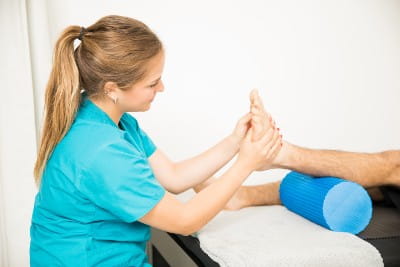If you’re at risk for breast cancer, it doesn’t necessarily mean you will develop the disease. However, many women are concerned and want to understand the risk factors and symptoms associated with breast cancer. As with any health concern, be sure to talk to your doctor if you have questions or concerns about your breast cancer risk.
Risk factors
Breast cancer research suggests there are several types of risk factors for developing breast cancer. These risk factors are divided into two main categories:
- Risk factors you can’t change
- Lifestyle-related risk factors
Risk factors you can’t change
If you are concerned that you are at risk for developing breast cancer, it is best to talk to your physician about your family history and other risk factors for breast cancer. The following risks are factors you are born with or can’t change:
Age
As you age, your risk of breast cancer increases. According to the Centers for Disease Control and Prevention, the risk for breast cancer increases with age; most breast cancers are diagnosed after age 50.
Family history of breast cancer
You have an increased risk for breast cancer if you have a mother, sister or daughter (a first-degree relative) who has had breast cancer. You also have an increased risk if several family members on your mother’s or father’s side of the family have had breast cancer.
Gender
While men can develop breast cancer, studies suggest that it is approximately 100 times more common among women. Women are at higher risk because of the production of female hormones, which promote cell growth.
Genetics
Genes play a large role in whether or not you develop breast cancer. According to the American Cancer Society, the main cause of hereditary breast cancer is an inherited mutation in the BRCA1 and BRCA2 genes. Some women at high risk for breast cancer choose to be tested to find out if they have the BRCA1 and BRCA2 genes.
Lifestyle factors
These risk factors are related to your lifestyle and overall habits. Because you can control your habits, these risk factors are ones you can change.
Alcohol usage
According to the American Cancer Society, alcohol consumption is linked to an increased risk of breast cancer. Women who have one alcoholic drink per day have a small increase in risk compared to nondrinkers. Women who consume two to three drinks per day have a 20 percent higher risk compared to women who don’t drink alcohol.
Overweight
Studies suggest that women who do not exercise have an increased risk of breast cancer. Research has shown that an increase in physical activity is linked to a lower breast cancer risk.
Inactivity
Although researchers do not fully understand why inactivity increases breast cancer risk, studies suggest that it is related to the effects of exercise on a person’s weight, inflammation, hormones and energy balance.
When it comes to exercise, the American Cancer Society recommends that adults get at least 150 minutes of moderate intensity activity -- or 75 minutes of vigorous intensity activity each week.
Birth control
Research has found that women using birth control pills have a slightly higher risk of breast cancer than women who have never used them. If you are taking birth control pills and have concerns about your risk factors, talk with your doctor before you stop taking them.
Breast cancer signs and symptoms
According to the CDC, the most common signs of breast cancer include:
- A lump in the breast or armpit that is new
- Thickening of the breast(s)
- Irritation or dimpling in the breast skin
- Redness or flaky skin in the nipple area or the breast
- Nipple changes or pain in the nipple
- Nipple discharge
- Any change in the size or the shape of the breast(s)
- Pain in any part of the breast(s)
If you’re looking for a doctor who specializes in breast health, you can schedule an appointment to meet with a member of our Riverside Medical Group team. Our health care providers include experts in women's health and breast cancer. Remember, it’s important to stay informed about your risk factors and other causes of breast cancer. Regular breast exams and health screenings can help you maintain your good health.
Resources
- CDC: Symptoms of Breast Cancer, https://www.cdc.gov/cancer/breast/basic_info/symptoms.htm
- American Cancer Society: Breast Cancer Risk/Prevention, https://www.cancer.org/cancer/breast-cancer/risk-and-prevention.html



